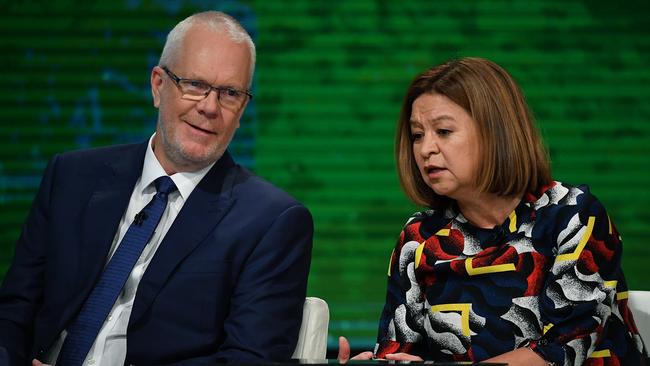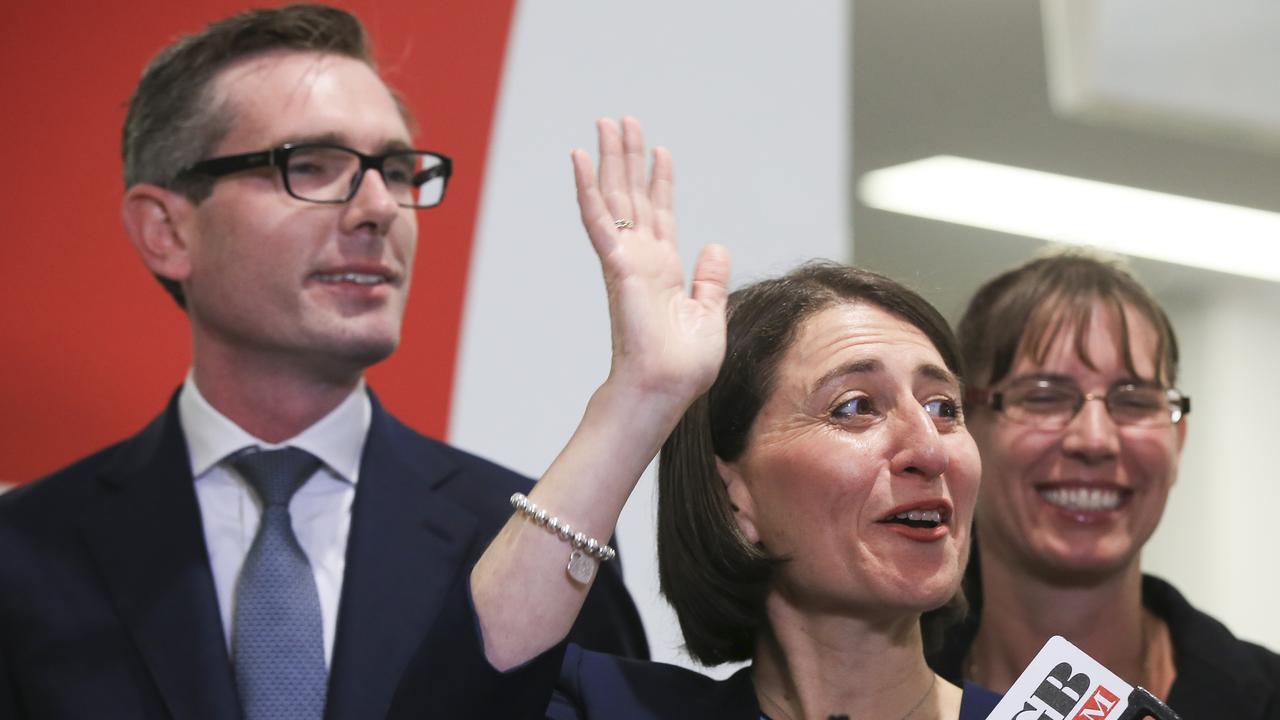Michelle Guthrie’s sacking is all about the ABC’s digital march


Those welcoming the sacking of Michelle Guthrie as a long overdue shake up of a delinquent ABC ought to think again. The rationale behind this decision does not augur well for ABC reform or for media balance in this country.
Make no mistake, if Guthrie had been sacked for her demonstrable failure to rein in the journalistic excesses of the national broadcaster I would have been lauding the move. After the organisation’s worst journalistic week in a decade – running jejune conspiracy theories as news after completely missing the political tensions and policy imbroglios that led to the demise of Malcolm Turnbull – it is clear to all that the green Left groupthink at the organisation is running out of control.
But this sacking has nothing to do with journalistic standards, the drift to the lunar Left and alienation of mainstream Australian audiences. It is all about the relentless march of the ABC into every available digital media space.
The two are related only in so much as that while the national broadcaster is obsessed with expansion it ignores the more fundamental challenge of content and editorial management.
ABC chairman Justin Milne has refused to detail reasons for Guthrie’s dismissal, even daring to suggest she had done a “good job” while adding that “her leadership style was not the leadership style that we needed” in the future. Yet when pressed about how the ABC could improve Milne went straight to “modernisation” and a digital infrastructure project called Project Jetstream.
The Australian’s media diarist Stephen Brook revealed this morning how Milne’s championing of this project was at the heart of disagreements with Guthrie. It is a plan to spend tens of millions of dollars making all ABC video and audio available for free online — like a publicly-funded Netflix.
It represents a massive new intrusion by the ABC into media spaces not envisioned when it was conceived. We can expect commercial radio and television operators to be very concerned.
In an interview today after sacking Guthrie, Milne said Jetstream will be “expensive” but that the ABC needed to “build the digital infrastructure” to give audiences what they want in an all-digital environment. “We just need to embrace Jetstream,” he said, noting it would produce nothing for at least three years.
Guthrie seems to have gone because she was too focused on traditional ABC fare and not sufficiently enamoured with this expansion. That is a worry.
In fact Guthrie confirmed this in a statement this morning saying content was her “primary” priority with the technology used to deliver it a “distant second.”
I have long argued that the expansion of the ABC charter to include digital media services — that happened under the Gillard Labor government with bipartisan Coalition support — was a mistake. It has given the national broadcaster carte blanche to expand into any media market it chooses.
Established in the 1930s for radio services, expanded post-war to cover television, there is no need for the ABC to expand further. We have never had greater or cheaper media choices and access from across the country and around the world. Yet Milne and others continue to push for public funds to expand the reach of public broadcasters. If this were happening in any other industry there would be outrage.
Commercial media operators have to be nimble and innovative to find new services, products and markets as well as models to make them pay; the ABC just dips into public funds to follow them into every crevice and crowd them out with free content — free, green Left content.
Guthrie is gone; but not for the right reasons. The media landscape just became even more complex and combative.




To join the conversation, please log in. Don't have an account? Register
Join the conversation, you are commenting as Logout